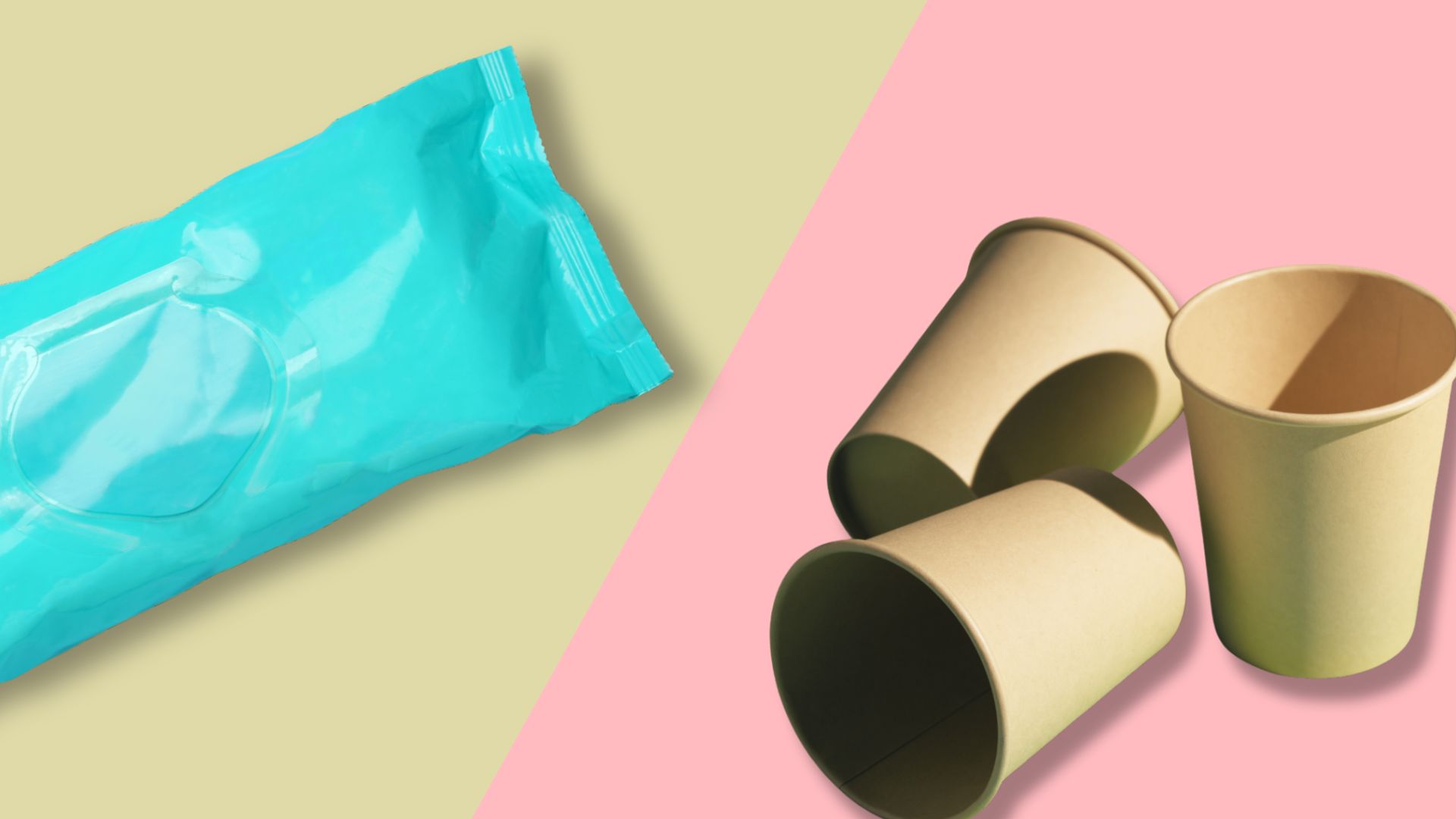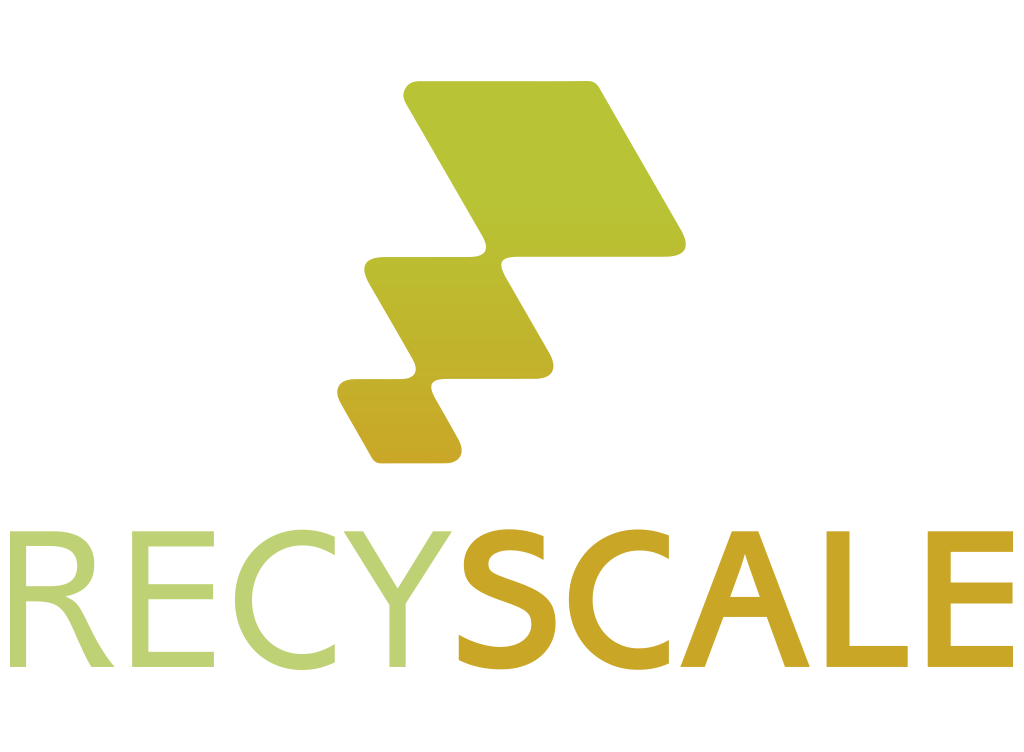RECYSCALE: Development of new technologies for the decontamination of plastic films and the recycling of laminated papers

The RECYSCALE project focuses on the development of new technologies for the decontamination of flexible polyolefins and the recycling of cellulose from laminated papers. Specifically, for polyolefin decontamination, processes involving steam, polyethylene glycol, ozone, and/or vacuum and heat will be carried out. On the other hand, the delamination and decontamination of laminated papers will be performed using mechanical, chemical, and advanced technologies, adapted to the complexity of these structures.
Context
The production of plastics and paperboard packaging has grown significantly in recent decades, establishing both as key pillars in the packaging sector. However, both materials exhibit significant challenges in terms of recyclability, sustainability, and waste management.
In the case of plastics, global production reached 400 million tonnes in 2022, of which 59 million correspond to Europe. Polyolefins, especially low-density polyethylene (LDPE), play a prominent role in packaging, although their waste represents an environmental challenge. In Europe, only around 46% of plastic packaging waste is recycled, while in Spain, polyolefin consumption exceeds 1.85 million tonnes per year. To face this challenge and advance towards a circular economy, regulations such as Royal Decree 1055/2022, Law 7/2022, and Regulation (EU) 2025/50 set targets for recyclability and recycled content, as well as fiscal measures that promote more sustainable materials. Nevertheless, technical barriers persist in the recycling of complex plastics, such as LDPE films.
On the other hand, global production of paper and cardboard packaging in 2023 reached 401 million tonnes, with Europe as the main contributor, totaling 85 million metric tonnes in 2022 and 73 million in 2023. Its origin in cellulose fibers, both virgin and recycled, makes it a sustainable alternative, although the use of additives and the presence of unintended contaminants pose challenges in terms of safety and circularity. In Spain, Royal Decree 1055/2022 sets recycling targets of 75% for 2025 and 85% for 2030, and requires that all packaging be recyclable by 2030. However, laminated or complex papers remain difficult to recycle due to their combination with plastics, waxes, or metals, and the lack of adequate technologies and infrastructure for their decontamination results in a large share of this waste ending up in landfills or in energy recovery.
Summary and objetives
The main objective of RECYSCALE is the research and optimization of decontamination processes for flexible polyolefins and recycling processes for laminated papers, focusing on the delamination of cellulose and plastic films.
In the case of flexible polyolefins, solutions will be investigated to improve their decontamination, aiming to increase their quality and suitability for demanding applications, such as the detergent and cosmetics sectors. For this purpose, a specific pretreatment process will be developed for this type of waste, incorporating advanced technologies such as steam, polyethylene glycol, ozone, and/or vacuum and heat. These techniques will allow for more effective contaminant removal, facilitating their reuse in sectors with high decontamination requirements. Additionally, work will focus on optimizing their properties through the incorporation of functional additives that enhance performance and versatility.
On the other hand, to address the recycling and delamination of laminated structures composed of paper and plastic, innovative solutions will be developed that combine physical and chemical methods capable of efficiently separating the different functional layers, facilitating the recovery of cellulose fibers. This process will be complemented by the application of advanced oxidation techniques aimed at removing critical contaminants such as PFAS, BPA, and mineral oils, which could compromise the quality of the recycled material. Finally, additive technologies will be developed to improve the functional properties of the recovered materials, optimizing their performance and adaptability to the requirements of processors and their reintegration into high-quality products.
The project objectives will be implemented through three lines of action:
-
Waste characterization, controlled contamination, and pretreatment: This line will involve the characterization of both types of waste. In addition, work will be carried out on establishing controlled contamination of LDPE, which will serve as a starting point for the development of decontamination processes. In parallel, pretreatment of both waste types will be advanced, focusing on the reduction of physical and chemical contaminants in LDPE and on the delamination of laminated papers, with the aim of separating cellulose from the other materials present in the waste structure.
-
Optimization and design of valorization processes: This line will focus on the decontamination of LDPE and the cellulose recovered from laminated paper through the design and optimization of specific processes at laboratory and pilot scale.
-
Transformation of recycled materials: This line will work on processing and additive incorporation in recycled materials, aiming to improve their quality and adapt them to the technical requirements of processors, thus promoting their integration into new industrial applications.

